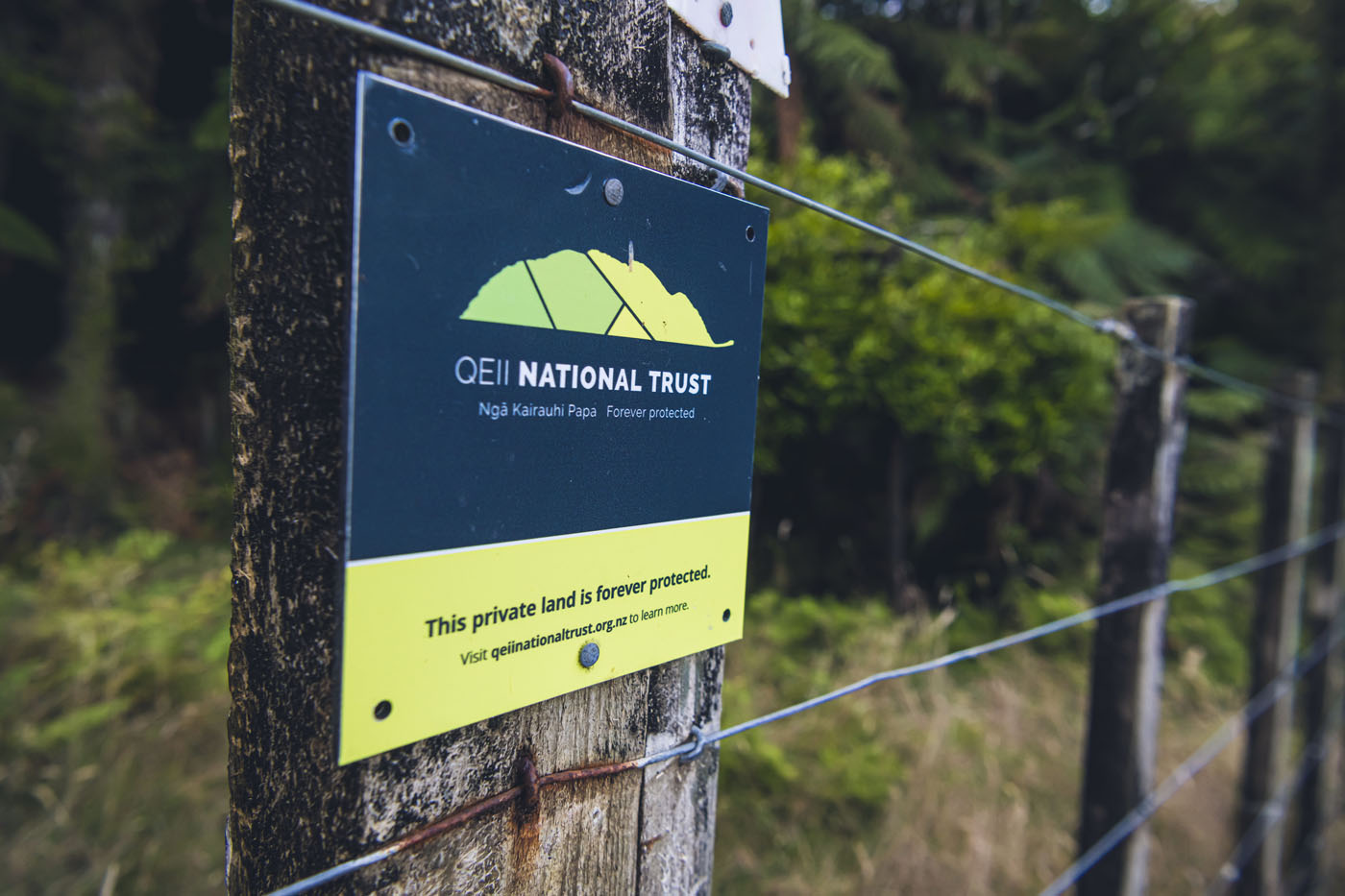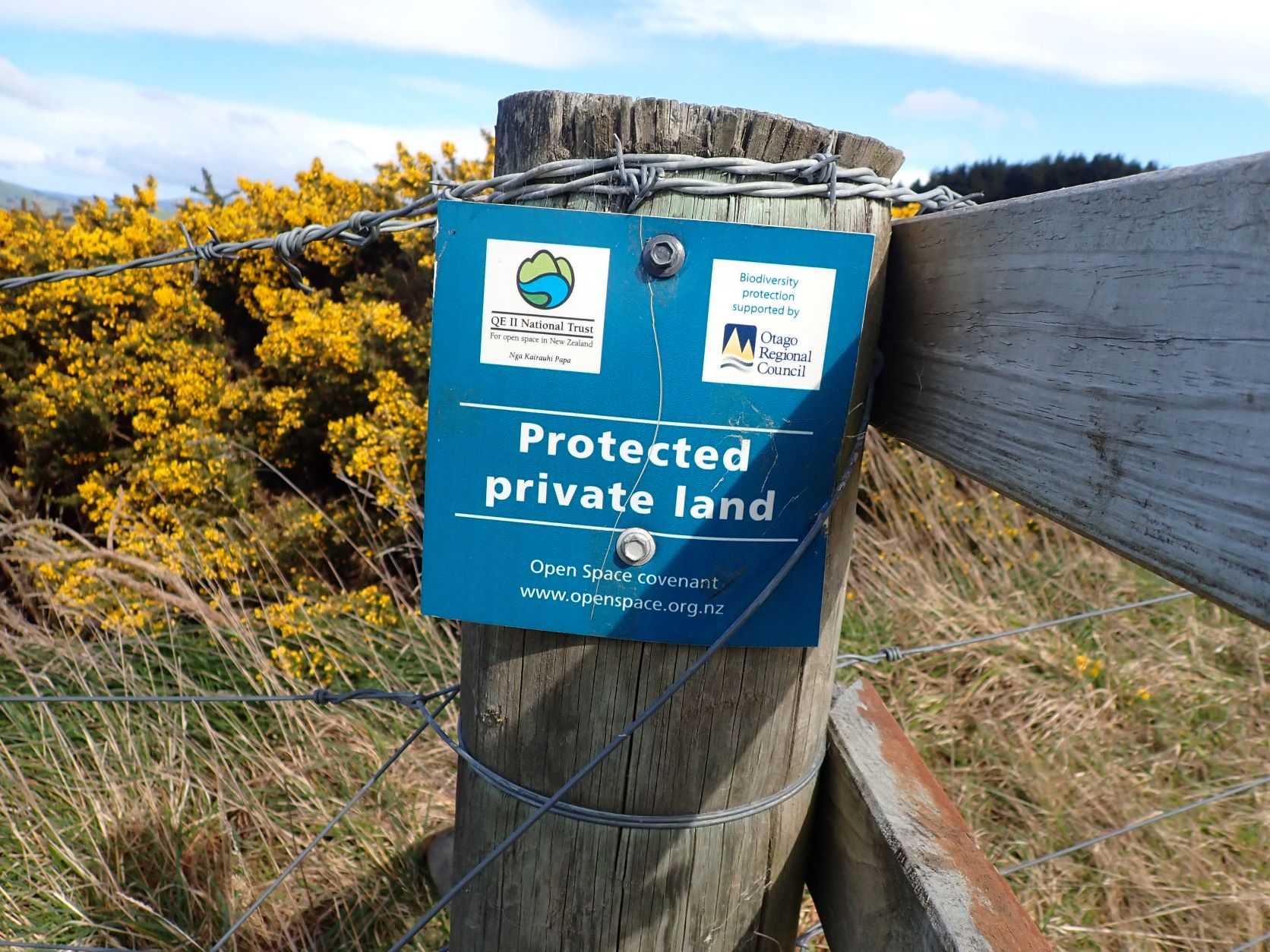-
-
-
-
-
Maintaining the Gains in costal Otago
-
-
-
-
-
-
December 2021–March 2025
ORC was involved in this project from 2021 through to 2025, and we continue to celebrate the ongoing work by the Auhaka field team and the community.
This was a partnership project with Aukaha and in collaboration with QEII National Trust to control pest plants across 16 QEII covenants in the coastal Otago area.
The model was so successful that ORC and QEII have committed to continuing to support Aukaha to carry out this model of pest plant control in priority covenants throughout Otago.
The below map shows where pest plant control work was completed during the project. On the back of this great work, ORC is now funding the Aukaha field team to continue pest plant control and strengthen the partnerships with QEII and Aukaha.
As this work progresses, we’ll be updating the below map to show where future gains are being made.
This Jobs for Nature project targeted around 1400 hectares of QEII covenanted land for pest plant control over three years. It will be managed by Otago Regional Council, in collaboration with Aukaha and QEII National Trust.
Aukaha is a Rūnaka-based consultancy service, linking communities, engaging with iwi, and providing a shared understanding to make Otago a better place to be. We work closely with Aukaha on many projects.
QEII National Trust works with landowners to protect and enhance open spaces of ecological and cultural significance.
Working together to protect our beautiful coastal Otago landscape and keeping these pest plants out of the picture.

Private landowners have the option to commit in perpetuity to set aside covenanted land on their property. This land will not be developed, and native landscapes are left to thrive. Most covenants remain on land forever; some may be for as short a time as ten years. Thanks to the generosity of New Zealand landowners, we are rich in QEII covenanted land.
The work landowners do in protecting this land, like excluding stock from the protected area, is critical in protecting existing native habitats and encouraging regeneration of native vegetation. This protects habitats for threatened indigenous species and provides corridors linking larger areas of private and public conservation land.
However, weeds threaten our landscape and biodiversity. Pest plants such as Old Man’s Beard and Sycamore are rampant across the South Island. QEII covenants protect areas of high biodiversity value from development, but ongoing maintenance is required to protect QEII covenants from the detrimental effects of invasive pest plants.

Representatives from QEII will contact covenant owners and see if they would like assistance from the Aukaha team to manage the weeds in their covenants. If the landowners agree, QEII facilitates an introduction to the team who then visit to assess their covenant for suitability according to the type of weeds, extent of problem and its impact on biodiversity, and accessibility.
Landowners will then need to sign an agreement to permit pest plant control on their property.
Aukaha's kaimahi (field team) will complete the work alongside kaitiaki rangers specialised in pest plant control.

Below is an excerpt from an article on QEII’s website entitled: A day in the life of maintaining the gains – Tamara Dick and the war on weeds.
It is a slice of life recollection by Maintaining the Gains field worker, Tamara Dick.
“On a hill above Hoopers Inlet, our group stood beneath the gnarled trunk of an old kōwhai tree looking out over the yellow hills of the Otago Peninsula. Most of the land was cleared by fires many years ago but pockets of forest remnants have survived. What is left leads us to believe that the original forests were predominantly a mixture of broadleaf (Griselinia littoralis) and podocarp. Podocarps are slow-growing, and few remain on the peninsula, often found in specially preserved land like this.
The native biodiversity on this land is legally protected in perpetuity by the QEII National Trust. On the other side of a rabbit-proof fence is 36 hectares of native bush that Moira and her partner John fight tirelessly to protect from invasive exotic plants, including their persistent enemy the banana passionfruit.”
You can read the full account on qeiinationaltrust.org.nz.
July 2022–Oct 2022
QEII covenants within 50 km of Dunedin central identified.
Phase 1: First group of landowners visited to discuss work.
QEII covenants (10 covenants) assessed and prioritised.
November 2022–February 2023
Phase 1: Those selected QEII Covenants will be scoped for work.
Aukaha Field Team will begin pest plant work on the first covenants.
February 2023–December 2023
Phase 2: QEII covenants (6 covenants) assessed, prioritised, and scoped for work.
Second group of landowners visited to discuss work and pest plant work continues.
January 2024–November 2024
Phase 3: Pest plant work continues on remaining covenants.
December 2024
ORC sought, and was granted, a project extension to March 2025.
March 2025
Project close.
Otago Regional Council Project Delivery Specialist
Melanie White
Email melanie.white@orc.govt.nz
Tel 027 357 2568
ORC Biosecurity Officer — Coastal Otago
Kirk Robertson
Email kirk.robertson@orc.govt.nz
Tel 027 498 6146
QEII Representative — Coastal Otago
Cathy Rufaut
Email crufaut@qeii.org.nz
Tel 021 100 8347

Jobs for Nature – Mahi mō te Taiao
The Jobs for Nature programme helps revitalise communities through nature-based employment.

Aukaha
Embedding mana whenua values in regional development through employment, training, health services, housing, and cultural integration.

QEII National Trust
Working with landowners to protect and enhance open spaces of ecological and cultural significance.
This project is funded by the Department of Conservation through the Government’s Jobs for Nature programme and is designed to create jobs while enhancing nature. Otago Regional Council has secured $1 million of funding to help Otago make real progress in controlling pest plants across 16 QEII covenants in the coastal Dunedin area.
